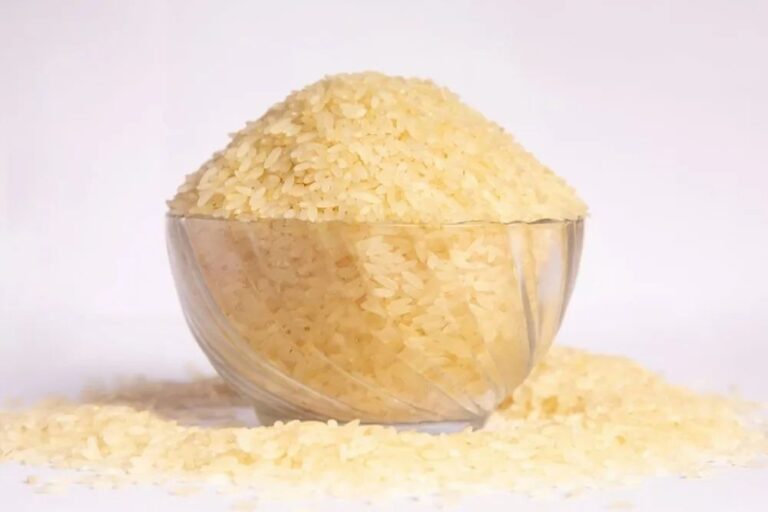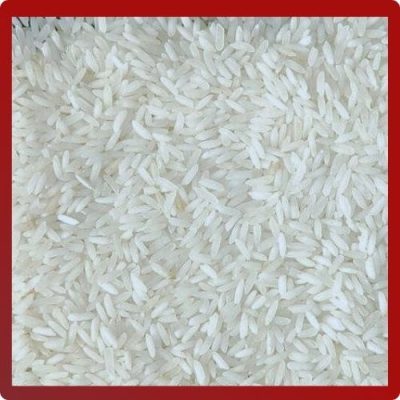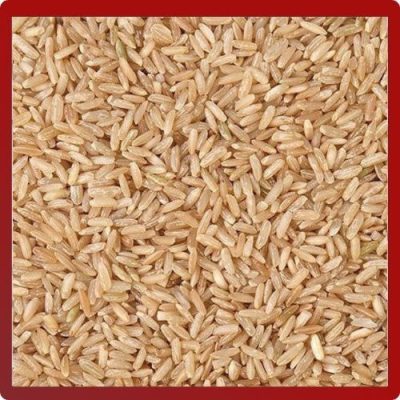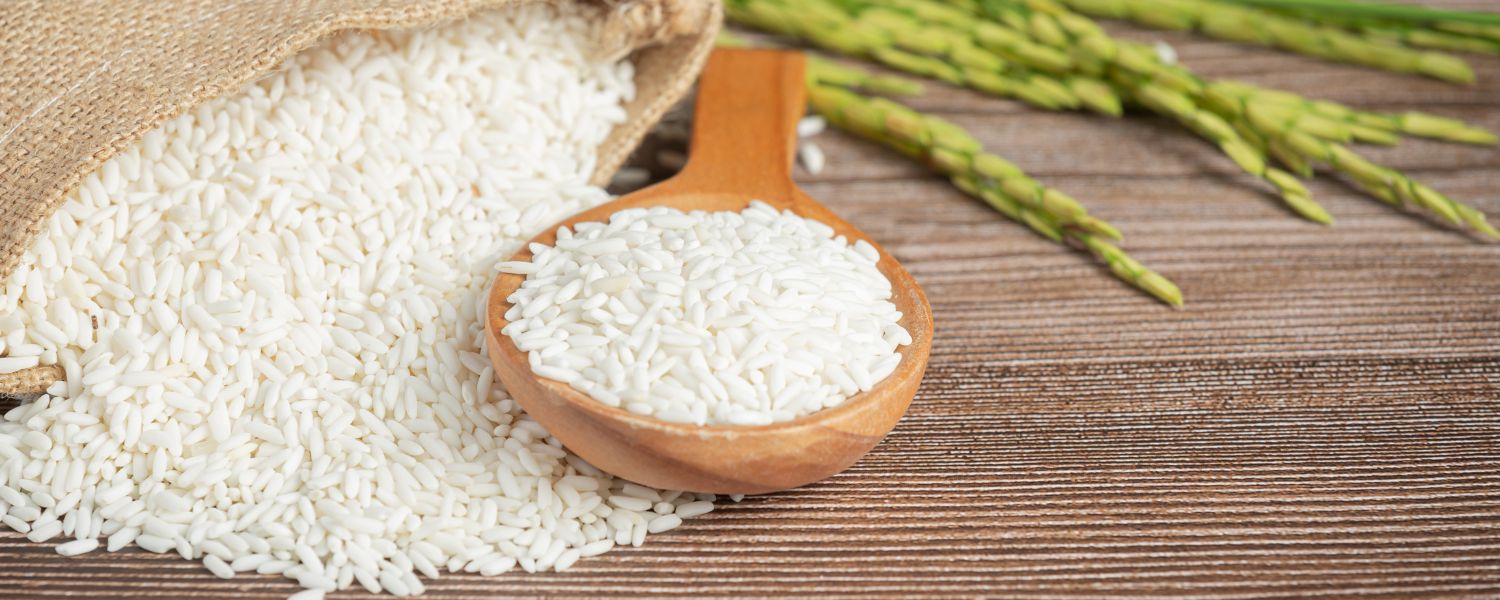Rice is a staple in many cuisines worldwide, and among the numerous varieties, Ponni rice stands out for its unique qualities and health benefits. If you have ever wondered what Ponni rice is, why it is so special, or how to incorporate it into your daily diet, you’re in the right place! This blog will cover everything you need to know about Ponni rice in simple language, from its origins and types to its nutritional benefits and cooking tips.
What is Ponni Rice?

Ponni rice is a popular variety of rice cultivated primarily in the southern parts of India, particularly in the states of Tamil Nadu and Andhra Pradesh. The name “Ponni” comes from the name of a sacred river in Tamil Nadu, the Cauvery River, which is locally known as Ponni. The river’s rich, fertile soil contributes to the superior quality and taste of Ponni rice.
Ponni rice is medium-grain rice that is known for its soft, fluffy texture when cooked. It is widely used in everyday meals across South India and is favored for its ability to absorb flavors, making it perfect for a variety of dishes like biryanis, curries, and traditional South Indian meals like sambar rice.
Types of Ponni Rice
Ponni rice comes in two main types: White Ponni rice and Brown Ponni rice. Let’s take a closer look at each type

White Ponni Rice
White Ponni rice is the most common variety found in the market. The outer husk and bran layer are removed during milling, leaving behind white rice grains. White Ponni rice is known for its soft, fluffy texture and slightly sweet taste. It cooks quickly and pairs well with a wide range of dishes. This variety is especially favored in South Indian households for making dishes like steamed rice, pulao, and idli.

Brown Ponni Rice
Brown Ponni rice is less processed than its white counterpart. It retains its outer bran layer, making it a whole grain. As a result, brown Ponni rice has a slightly nuttier flavor and chewier texture. It is also more nutritious than white Ponni rice due to the presence of the bran layer, which contains essential nutrients like fiber, vitamins, and minerals. Brown Ponni rice takes longer to cook than white rice, but it is a healthier option for those looking to incorporate more whole grains into their diet.
Health Benefits of Ponni Rice
Ponni rice is not only delicious but also comes with a host of health benefits. Let’s explore some of the key advantages of including Ponni rice in your diet:
Rich in Carbohydrates
Ponni rice is an excellent source of carbohydrates, which provide energy to the body. Carbohydrates are the primary fuel for our muscles and brain, making them essential for daily activities. Ponni rice is a good choice for those looking for an easily digestible and quick source of energy.
Low Glycemic Index
One of the significant benefits of Ponni rice, especially the brown variety, is its low glycemic index (GI). Foods with a low GI release glucose slowly into the bloodstream, preventing rapid spikes in blood sugar levels. This makes Ponni rice suitable for individuals with diabetes or those trying to manage their blood sugar levels.
High in Fiber
Brown Ponni rice is high in dietary fiber, which aids in digestion and helps prevent constipation. Fiber also promotes a feeling of fullness, which can help with weight management by reducing the urge to overeat. Including fiber-rich foods like Ponni rice in your diet can contribute to a healthy digestive system and overall well-being.
Gluten-Free
Ponni rice is naturally gluten-free, making it a safe option for individuals with celiac disease or gluten intolerance. It can be used as a base for gluten-free meals, such as rice salads, rice bowls, or as a side dish with curries and stews.
Rich in Vitamins and Minerals
Ponni rice, particularly the brown variety, contains essential vitamins and minerals such as B vitamins (thiamine, niacin, and riboflavin), iron, magnesium, and manganese. These nutrients play a crucial role in maintaining good health, supporting metabolism, improving nerve function, and maintaining healthy skin.
Supports Heart Health
Brown Ponni rice contains healthy fats and is free from cholesterol, which makes it a heart-friendly food. The presence of fiber in brown rice helps in reducing cholesterol levels, thus lowering the risk of heart diseas
How to Cook Ponni Rice?

Cooking Ponni rice is straightforward, and it can be done in several ways, depending on the type of rice and the dish you wish to prepare. Here is a basic guide to cooking both White and Brown Ponni rice:
Cooking White Ponni Rice
- Rinse the Rice: Start by rinsing the white Ponni rice under running water to remove any surface starch. This step ensures that the cooked rice is fluffy and not sticky.
- Soak the Rice: Soaking the rice for about 15-20 minutes before cooking can help shorten the cooking time and yield softer grains.
- Boiling Method: In a pot, add water in a 2:1 ratio (two parts water to one part rice). Bring the water to a boil, then add the soaked and drained rice. Reduce the heat to low, cover the pot, and let it simmer for 10-15 minutes or until all the water is absorbed and the rice is tender.
- Fluff and Serve: Once cooked, remove the pot from heat and let it sit for 5 minutes before fluffing the rice with a fork. Serve hot.
Cooking Brown Ponni Rice
- Rinse the Rice: Rinse the brown Ponni rice thoroughly to remove any debris or excess starch.
- Soak the Rice: Soaking is more important for brown rice due to its bran layer. Soak the rice for at least 30 minutes to an hour to reduce cooking time and improve texture.
- Boiling Method: Use a 2.5:1 ratio of water to rice. In a pot, bring the water to a boil, add the soaked and drained rice, reduce the heat, cover, and simmer for 30-40 minutes or until the rice is tender and water is absorbed.
- Rest and Fluff: Allow the rice to rest for 5-10 minutes off the heat, then fluff with a fork before serving.
Delicious Recipes with Ponni Rice
Ponni rice can be used in a variety of dishes, from simple everyday meals to special occasions. Here are a few easy recipes you can try at home:
1. Ponni Rice Idli
- Ingredients: 1 cup Ponni rice, ½ cup
urad dal (split black gram), ¼ tsp fenugreek seeds, salt to taste. - Instructions: Soak the rice and urad dal
separately for 4-6 hours. Grind them separately into a smooth batter, mix
well, and let it ferment overnight. Add salt, pour the batter into idli
molds, and steam for 10-15 minutes. Serve hot with chutney and sambar.
2. Ponni Rice Biryani
- Ingredients: 2 cups Ponni rice, 1 cup
mixed vegetables (carrots, beans, peas), 1 onion (sliced), 2 tomatoes
(chopped), 2 tsp biryani masala, 2 cups water, salt, and spices (cumin,
bay leaf, cloves). - Instructions: Heat oil in a pan, sauté
the spices, onions, and tomatoes until soft. Add the vegetables and
biryani masala. Stir in the rice and water, cover, and cook on low heat
for 20 minutes or until the rice is done. Garnish with coriander leaves
and serve hot.
3. Lemon Ponni Rice
- Ingredients: 2 cups Ponni rice, 2 tbsp lemon juice, 1 tsp mustard seeds, 2 dried red chilies, 1 green chili (slit), a few curry leaves, salt, and turmeric.
Instructions: Cook the rice and set it aside. In a pan, heat oil, add mustard seeds, red chilies, curry leaves, green chili, and turmeric. Add the cooked rice, lemon juice, and salt. Mix well and serve hot with papad and pickles.
Tips for Storing Ponni Rice
Proper storage of Ponni rice is crucial to maintain its quality and flavor. Here are a few storage tips:
- Keep it in an Airtight Container: Store Ponni rice in a cool, dry place in an airtight container to prevent moisture and insects.
- Use it Within a Reasonable Time: While Ponni rice has a long shelf life, it is best used within 6-12 months for optimal freshness.
- Avoid Exposure to Sunlight: Keep the rice away from direct sunlight to prevent any loss of nutrients or quality.
Conclusion
Ponni rice is a versatile, nutritious, and delicious grain that can be a wonderful addition to your diet. Whether you prefer the soft, fluffy texture of white Ponni rice or the nutty flavor of brown Ponni rice, there are numerous ways to enjoy this rice variety. From its health benefits to its easy preparation methods, Ponni rice is a great choice for everyday meals or special occasions. So, why not give it a try and discover the delightful flavors of Ponni rice for yourself?
Frequently Asked Questions
Yes, Ponni rice is good for making dosa. It provides a light and crisp texture to the dosa batter when fermented. Its low starch content and easy digestibility make it ideal for achieving the right consistency and taste. Combining Ponni rice with urad dal creates a smooth batter, resulting in soft, golden dosas.
Yes, Ponni rice can be eaten daily as part of a balanced diet. It’s light, easy to digest, and has a relatively low glycemic index, making it a good choice for maintaining steady blood sugar levels. Rich in fiber and essential nutrients, Ponni rice supports digestion and overall health, making it suitable for regular consumption.
Yes, Ponni rice is a healthy option, particularly for those mindful of their diet. It has a low glycemic index, making it suitable for people with diabetes. It’s also easily digestible, rich in fiber, and light on the stomach. Additionally, Ponni rice is gluten-free and provides essential nutrients like vitamins and minerals.
Related Posts

Top 10 Rice Exporters in India
Rice is one of the most common ingredients in India, which has carved a niche for itself in foreign countries as well. Several sources and

12 Amazing Basmati Rice Benefits – Is Basmati Rice Healthy?
Basmati Rice is very common variety of rice but however unique because of its taste and distinctive aroma. It’s very likely that if you have

India Rice Exports Ban Explained: Causes and Removal
Rice is a staple food for billions of people across the world and holds a special position in the global market. India, being one of

